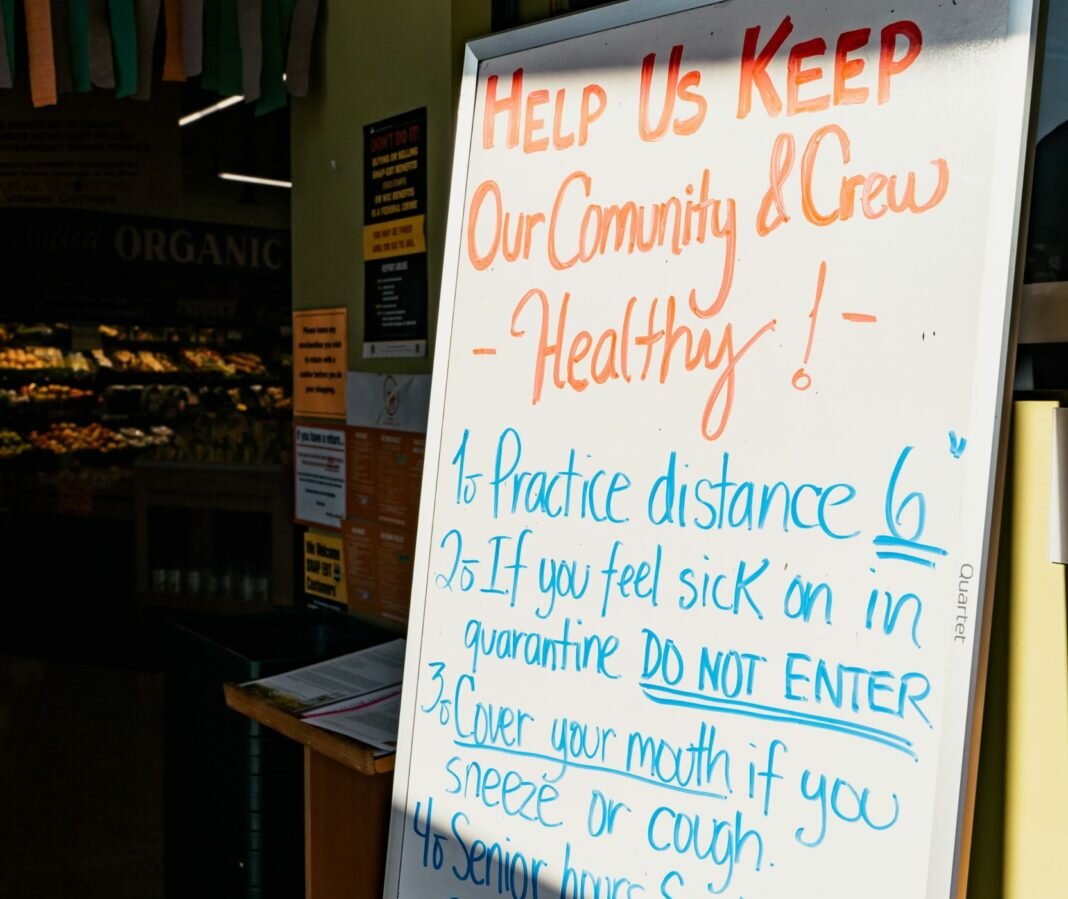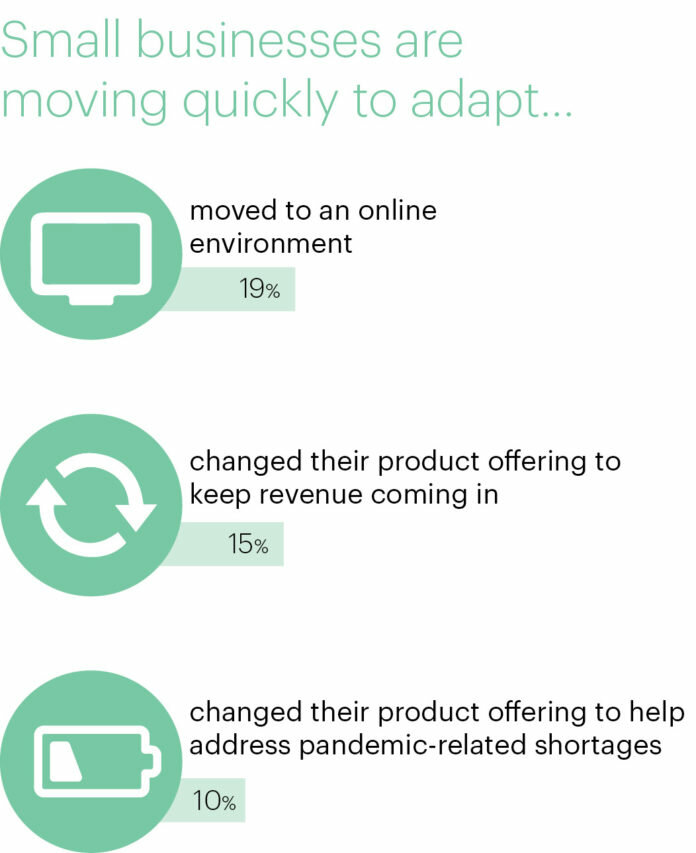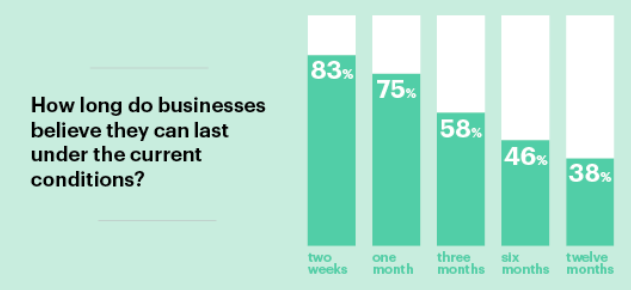Brief • 3 min Read


Roughly half of all small businesses indicate that they have been somewhat or very able to pivot to a more online or ‘socially distanced’ business model, and more than 6-in-10 report making changes to their business to address the pandemic.
The responses by businesses have been varied: 15% report having changed their product offering to keep revenue coming in such as Citizen Ruth – a self-proclaimed ‘feminist’ retail store now offering humorous ‘Covid-19 Care Packages’ you can send to your feminist friends or Imelda’s Shoes which is offering 10% off for life if you place an order online during the coronavirus closures. The distilleries who pivoted to make hand sanitizer early on in the pandemic are now in good company as 10% of small businesses report changing their product offering specifically to address shortages. Nearly one in five (19%) have shifted their product offering to be more online/virtual – this includes everything from yoga studios4 offering virtual sessions to chefs providing cooking classes. Americans are starting to embrace these virtual efforts. In the last week, 14% have taken a “homeschool” class online, while 9% have taken a virtual athletic class
One-in-ten small businesses have developed new products in recent weeks and a similar number are finding ways to engage with new customers during Covid-19. For example, McHarper Manor, a previously in-person only art studio, is now offering free online classes for kids. Additionally, a small percentage of small business owners (7%), say they have seen increasing sales over the course of pandemic.
However, this new way of doing business isn’t sustainable long-term for most – while 75% indicate they can survive another month of the current conditions, only 58% believe they could survive 3 months and fewer than half say they’d survive 6 months.

METHODOLOGY
This survey was conducted online within the United States by The Harris Poll from March 23-24, 2020 among 310 U.S. small business owners ages 18 and older. Small business owners are defined as owners/co-owners or franchisee/franchise owners of a company in the U.S. with fewer than 100 employees. Results align with the population of small businesses on company size. This online survey is not based on a probability sample and therefore no estimate of theoretical sampling error can be calculated.
Subscribe for more Insights
Subscribe to our newsletter for the latest trends in business, politics, culture, and more.
Related Content








